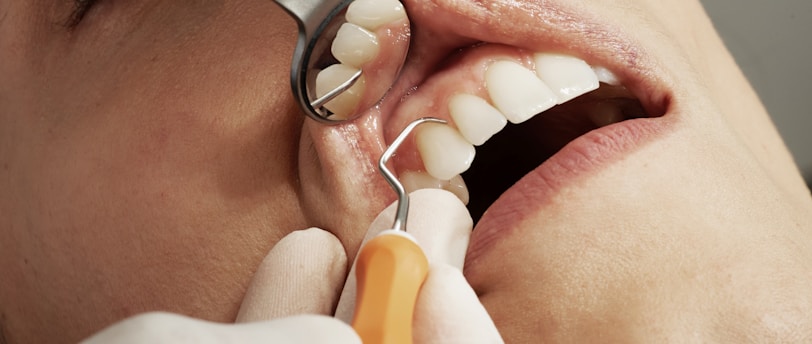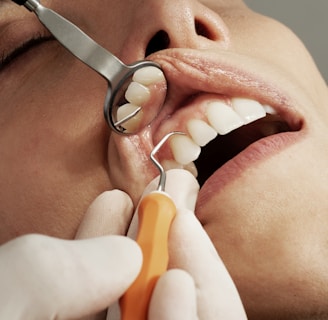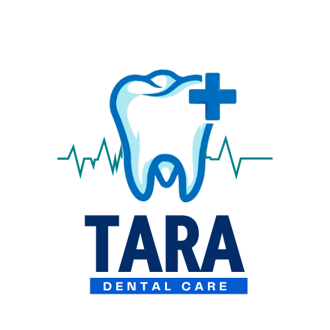Brighten Your Smile: Top Tips for Dental Care Success
Dr.Tharani Muniyasamy, BDS.,
1/26/20254 min read


Understanding the Importance of Dental Care
Maintaining good dental hygiene is a fundamental aspect of overall health that should not be overlooked. Research has shown a significant link between oral health and numerous systemic conditions, including heart disease and diabetes. Poor dental hygiene can lead to infections in the mouth, which can enter the bloodstream and adversely affect other parts of the body. For instance, individuals with periodontal disease are at a higher risk of developing cardiovascular issues. This establishes a clear connection between a healthy mouth and a healthy heart.
Furthermore, neglecting dental care does not only impact physical health but can also have psychological implications. A well-maintained smile boosts self-esteem and confidence, thus enhancing social interactions and quality of life. Regular dental check-ups are vital in identifying potential problems early, allowing for prompt interventions and treatment. These visits facilitate thorough examinations to detect cavities, gum disease, and even oral cancer, which can be critical in preventing more severe complications.
Prevention plays a crucial role in dental care success. Engaging in daily oral hygiene practices such as brushing twice a day and flossing regularly can substantially reduce the risk of developing adverse dental conditions. Additionally, a balanced diet low in sugars and acids can help protect tooth enamel and promote gum health. By prioritizing dental hygiene, individuals not only secure a bright smile but also contribute positively to their overall well-being.
In conclusion, recognizing the importance of dental care is essential. By fostering good oral hygiene practices, committing to regular dental visits, and understanding the implications on systemic health, individuals can achieve a vibrant smile that is reflective of their overall health and lifestyle. Making informed choices today can lead to a healthier future.
Essential Practices for Daily Dental Hygiene
Maintaining optimal dental hygiene is crucial for achieving a bright and healthy smile. One of the fundamental practices involves brushing your teeth at least twice a day. This routine not only helps remove food particles but also prevents plaque buildup, which can lead to cavities and gum disease. When selecting a toothbrush, consider a soft-bristled option to effectively remove plaque without damaging your enamel or irritating your gums. Additionally, using fluoride toothpaste is recommended, as it strengthens enamel and aids in cavity prevention.
Equally important to brushing is the practice of flossing. Flossing should be done at least once a day to thoroughly clean between your teeth and along the gumline where your toothbrush may not reach. Proper flossing technique involves gently sliding the floss between your teeth and forming a C shape around each tooth to dislodge debris effectively. This not only contributes to a cleaner mouth but also enhances overall gum health, which is essential for a radiant smile.
Incorporating mouthwash into your daily routine can also provide significant benefits. An antimicrobial mouthwash can help reduce plaque accumulation and gingivitis, while a fluoride rinse strengthens enamel. When choosing a mouthwash, opt for one that suits your specific dental needs, whether that is cavity protection, breath freshening, or whitening effects.
Furthermore, considering dental products designed for whitening can enhance the brightness of your smile over time. Whitening toothpaste or strips can complement your regular dental hygiene practice. It is advisable to consult with your dentist before beginning any whitening regime to ensure it aligns with your overall dental health.
Lifestyle Choices that Influence Dental Health
The choices one makes in daily life can significantly impact oral health and the brightness of their smile. A well-rounded understanding of how diet, hydration, and habits can influence dental well-being is essential. Certain dietary choices directly affect the aesthetics and health of teeth. Foods and beverages high in sugar or acid can lead to decay and discoloration. Regular consumption of items such as coffee, tea, red wine, and berries, while enjoyed in moderation, can stain teeth over time. In contrast, foods like apples, carrots, and celery can act as natural toothbrushes, promoting oral health by scrubbing away plaque.
Hydration plays a crucial role in maintaining oral health. Drinking adequate water helps rinse away food particles and bacteria, reducing the risk of cavities and gum disease. Moreover, saliva, which is primarily composed of water, acts as a natural defense against erosion and decay by neutralizing acids in the mouth. Therefore, ensuring proper hydration is vital for both systemic and oral health.
Habits such as smoking and excessive alcohol consumption can jeopardize dental health. Smoking not only leads to unpleasant breath and stained teeth but is also linked to gum disease and oral cancer. Similarly, alcohol can dehydrate the mouth, leading to a decrease in saliva production, which further increases the likelihood of cavities and bad breath. It is advisable to limit or avoid these habits to promote a healthier smile.
Regular dental visits and professional cleanings are essential components of maintaining optimal oral health. These appointments allow for early detection of potential issues and professional interventions that can preserve dental aesthetics. In summary, adopting healthy lifestyle habits, making informed dietary choices, staying hydrated, and avoiding harmful substances is fundamental to achieving dental care success and a bright, confident smile.
Professional Treatments for a Brighter Smile
Achieving a brighter smile often requires professional treatments to overcome stubborn stains and discoloration that typical at-home methods may not efficiently address. One of the most popular options for enhancing the brightness of teeth is in-office teeth whitening. This procedure typically utilizes a stronger bleaching agent activated by light or heat, allowing for immediate results. Patients can leave the dental office with a visibly brighter smile after just one session, which makes it an attractive choice for those looking for quick outcomes.
In contrast, at-home whitening kits may also be prescribed by dentists. These kits often contain a lower concentration of bleaching agents compared to in-office treatments, requiring more time for results to manifest. Although they may require a longer commitment, at-home kits provide flexibility, allowing individuals to whiten their teeth at their own pace while still being supervised by a dental professional. This option might be more suitable for patients with sensitive teeth, as it can be tailored to their comfort level.
Beyond whitening, other dental procedures can also contribute to a brighter smile. Dental bonding involves applying a tooth-colored resin to correct imperfections such as chips or discoloration, enhancing the overall appearance of one’s smile. Similarly, dental veneers, thin shells of porcelain or composite resin, can provide an effective solution for those seeking to cover discolored teeth or gaps. While both treatments offer aesthetic improvements, it is essential to weigh their benefits against potential drawbacks, such as cost, longevity, and the requirement for future replacements.
Ultimately, when considering professional treatments for a brighter smile, patients should consult with their dentist to evaluate which options best align with their dental health and aesthetic goals. An informed decision can lead to a more satisfying result, contributing to overall dental care success.
